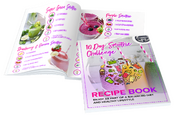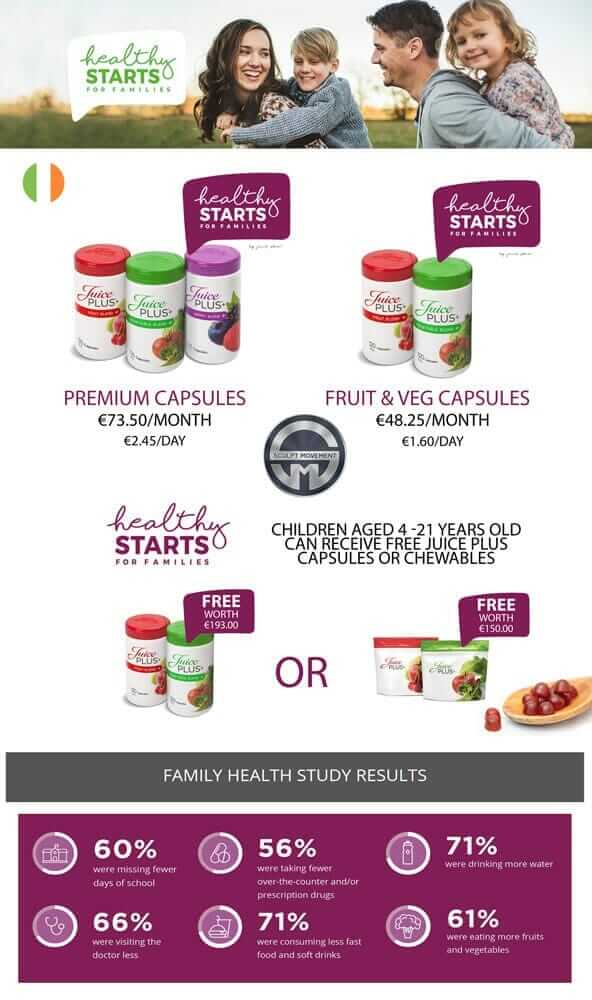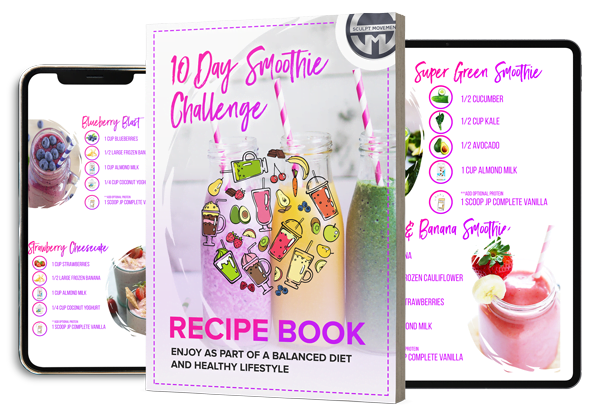
GET YOUR FREE 10 DAY SMOOTHIE RECIPE BOOK
Children’s immune systems can take a hit if they’re not being supported by healthy foods. As a results runny noses and constant colds can be pretty common with children in school. Having a strong immune system is not just about great genes. It’s about eating the right foods that can help strengthen your child’s immune system and prevent colds and flu. In children the immune system isn’t fully developed until they are 14 years old, which is why younger children are more susceptible to illnesses and infections.

1. Eat healthy food
Fruits and vegetables are high in vitamins, minerals and fibre. Children should be encouraged to eat a variety of fruits and vegetables – there is a rainbow of colours to choose from – which provides a rich source of antioxidants, instead of sugary snacks and fast food, which are high in fat and sugar. There is strong evidence to show that the nutrients found in fruits and vegetables can prevent chronic diseases such as cardiovascular diseases. Unless there is a major change in eating habits, more than a quarter of the next generation are piling up horrific health problems. I often blend vegetables into the food we have. A great tip is to add pureed broccoli and kale to stews or soups or add diced carrots and tomatoes to veggie burgers and bakes. Bell peppers, oranges, strawberries and other berries, carrots, squash, leafy greens, and apples will provide lots of vitamin A and C (which can help boost the immune system). For adults, aim for half your plate to be filled with fruits and vegetables, and for kids, aim for at least one third of their meals and snacks to consist of fruits and vegetables.

2. Getting enough good sleep
Most children are not getting the required amount of sleep. Depending on age, children need between ten and 14 hours of sleep per day. A lack of sleep can affect your childs immune system. Studies show that people who don’t get quality sleep or enough sleep are more likely to get sick after being exposed to a virus, such as a common cold virus. Lack of sleep can also affect how fast your child recovers if they do get sick. Quality of sleep is hugely important when it comes to building a child’s immune system. A top tip is to start small, by turning off devices such as a TV, tablet, games console or smartphone an hour before bed and set a consistent time for your child to go to sleep. Reading bedtime stories can help get a routine in place and is a great way to help them relax before they go to sleep.

3. Regular hand washing
Children frequently touch their eyes, nose, and mouth without even realizing it. Germs can get into the body through the eyes, nose and mouth and make them and us sick. Touch transmits up to 80% of infections. By teaching your children to wash their hands after sneezing, coughing and going to the bathroom. Washing hands with warm water and soap for at least 20 seconds can remove bacteria and viruses and can reduce the chance of lung infections by up to 45%. Antibiotics often are prescribed unnecessarily for these health issues. Reducing the number of these infections by washing hands frequently helps prevent the overuse of antibiotics—the single most important factor leading to antibiotic resistance around the world. Handwashing can also prevent people from getting sick with germs that are already resistant to antibiotics and that can be difficult to treat.

4. Toothbrushing Routine
Make sure that your child has their own toothbrush and it isn’t shared with siblings. If a child does get sick, then throw out their toothbrush straight away and replace it with a new one. Store children’s toothbrushes away from the toilet so that bacteria don’t spread in the air, to the toothbrush. A toothbrush holder inside a cabinet is an ideal place to store a child’s toothbrush. Brushing teeth at any age helps prevent the build up of dangerous bacteria that can cause a variety of health problems inside and outside of your mouth. This is especially important for babies who are still developing a healthy immune system and have extra sensitivity as their teeth are coming in.

5. Daily Exercise
Exercise increases the amount of natural killer cells (NKC) in both children and adults. Children are becoming increasingly sedentary, which is detrimental to their immune system. A lack of exercise in children can result in health problems and obesity. Studies have shown that moderate intensity exercise has a beneficial effect on a child’s immune system. To get your children into a lifelong fitness habit, be a good role model. “Exercise with them rather than just urge them to go outside and play.” Why not try some family sports like skiing, hiking, cycling or tennis?

6. Prebiotics and Probiotics
A child’s gut is home to an enormous population of bacteria. Homeostasis in this vast terrain is critical for the uptake of essential nutrients. Prebiotics are non-digestible nutrients that promote the growth of beneficial gut microbes. Think of them as food for good bacteria that promotes the growth of these good guys, thereby increasing their population in your child’s intestine.
Probiotics are bacteria or yeast that improve gut health. When your child consumes foods that contain probiotics, she increases her gut’s ratio of good bacteria to bad.
You can help restore your child’s bacteria balance by giving them foods that contain friendly bacteria such as yoghurts, or milk with added probiotics and by serving up food with prebiotic ingredients. Unlike probiotic bacteria, prebiotics are not destroyed when cooked, so are easy to include in everyday meals.

7. Juice Plus Healthy starts for families
It can be very frustrating when your child won’t touch their fruit & vegetables, but are happy to eat sugary food! Juice Plus+ Chewables deliver added whole food based nutrition from up to 30 different fruits, vegetables, berries, and grains in a tasty, soft chewable form. The appealing taste comes from two all-natural sweeteners – tapioca syrup and organic cane syrup – with absolutely no high fructose corn syrup. It contains no artificial flavours or artificial colours and is 100% vegetarian; the ‘chewiness’ comes from fruit pectins, not gelatin. They will just think they are eating sweets!
One key component of the Healthy Starts for Families initiative with more than 1.5 million participating families and nearly 20 years of results, the Family Health Study helps you document the lasting, positive effects of the changes you and your family make.
›› 1 Register: Register as a Juice Plus+ customer and purchase the Juice Plus+ Capsules.
›› 2 Join: When you join the Family Health Study as a customer bonus and study participant, you receive our Juice Plus+ Fruit and Vegetable Blend Capsules, or Soft Chewables for your child, for a maximum of four years for free.
FAMILY HEALTH STUDY SURVEY RESULTS
Since starting the Family Health Study, families have reported:
Ready to Sign Up?
Fill out the information below, and we will contact you soon to help you get started.
*Required Field
What Juice Plus capsules would you like to order?
*Requirements
Adults must be over the age of 18 and play an active role in a child’s life (as a relative, mentor or godparent) to sign up as a Juice Plus+ customer. Children must be between the ages of 4 and 21.




